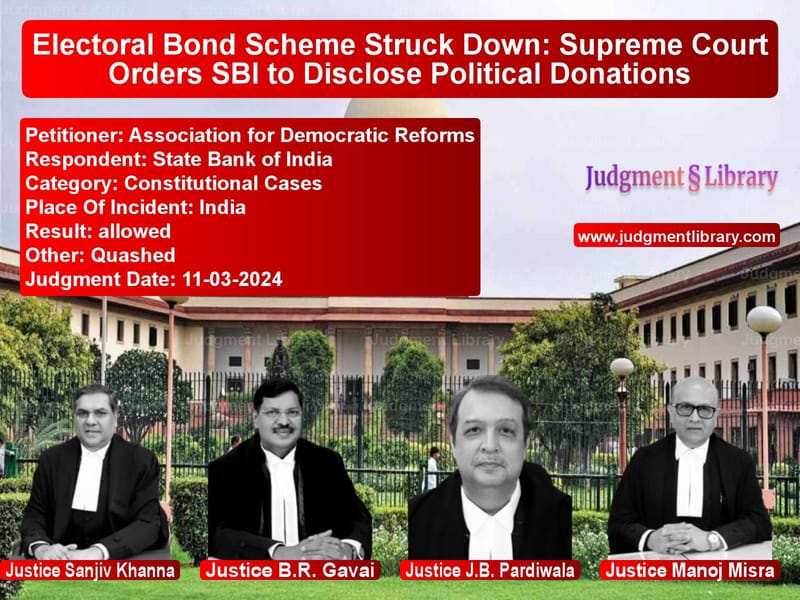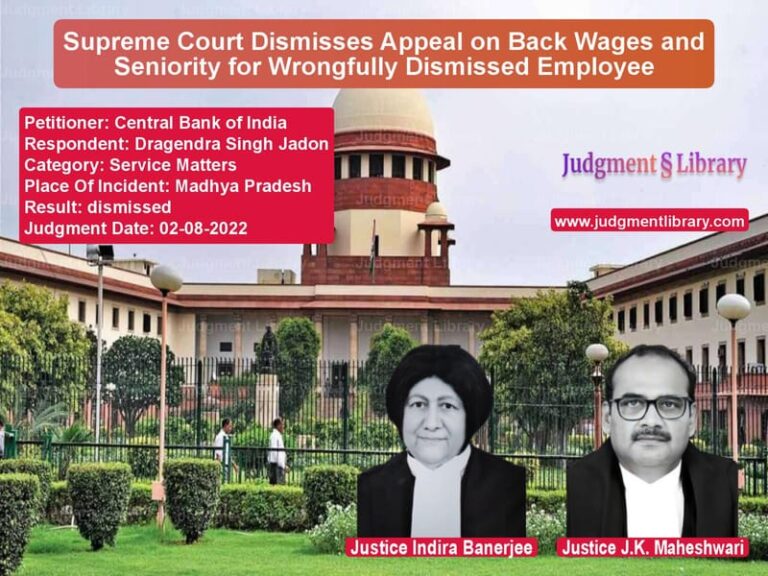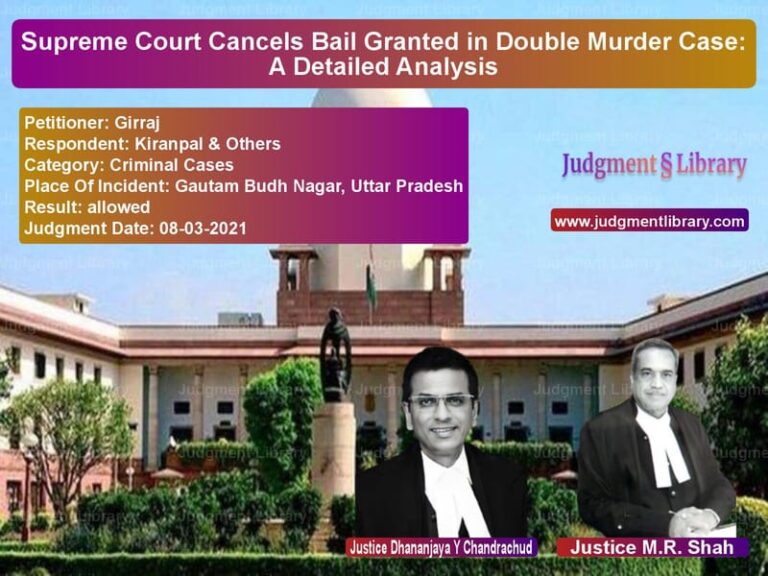Electoral Bond Scheme Struck Down: Supreme Court Orders SBI to Disclose Political Donations
The Supreme Court of India has delivered a landmark judgment in State Bank of India v. Association for Democratic Reforms & Ors., striking down the Electoral Bond Scheme as unconstitutional. The ruling mandates the immediate disclosure of all donors and recipients of electoral bonds, reinforcing transparency in political funding.
Background of the Case
The Electoral Bond Scheme, introduced through the Finance Act, 2017, allowed individuals and corporate entities to make anonymous donations to political parties. The scheme was challenged in Writ Petition (Civil) No. 880 of 2017 by the Association for Democratic Reforms (ADR) and others, arguing that it violated citizens’ right to information under Article 19(1)(a) of the Constitution.
On February 15, 2024, a Constitution Bench of the Supreme Court ruled that the scheme was unconstitutional, stating that the non-disclosure of political contributions violated democratic principles. The Court directed the State Bank of India (SBI) to furnish details of all electoral bonds purchased and redeemed from April 12, 2019, to February 15, 2024, and instructed the Election Commission of India (ECI) to publish the information.
Petitioner’s Arguments
ADR and other petitioners argued that:
- Violation of Right to Information: The scheme’s anonymity clause denied citizens the fundamental right to know the funding sources of political parties.
- Arbitrariness and Lack of Transparency: The unlimited corporate donations allowed under the scheme promoted quid pro quo arrangements between businesses and political entities.
- Unequal Access to Political Funding: Ruling parties disproportionately benefited from electoral bonds, creating an unfair political playing field.
- Misuse of Banking Secrecy: SBI, as the sole issuer, maintained details in silos, making it difficult to trace individual donations.
Respondent’s Arguments
The State Bank of India and the Government defended the scheme, asserting that:
- Protection of Donor Privacy: The anonymity provision was designed to protect donors from political victimization.
- Encouraging Legitimate Political Donations: The scheme provided an alternative to cash-based, unaccounted political funding.
- Existence of Regulatory Oversight: The Reserve Bank of India (RBI) and SBI had control mechanisms in place to prevent misuse.
- Economic Benefits: Transparent funding through banking channels discouraged black money in elections.
Supreme Court’s Observations
Delivering the judgment, Chief Justice Dr. Dhananjaya Y Chandrachud emphasized that the scheme violated constitutional principles of transparency and equality:
“The non-disclosure of political donations infringes on citizens’ fundamental right to information and undermines democratic accountability.”
The Court further ruled:
- Electoral bonds facilitated opacity in political funding: The scheme concealed the nexus between money and politics, enabling corporate influence over policymaking.
- Article 19(1)(a) violation: The absence of disclosure violated citizens’ right to know, a cornerstone of electoral democracy.
- Article 14 breach: Unlimited corporate donations, coupled with anonymity, created arbitrary advantages for ruling parties.
Final Judgment
The Supreme Court issued the following directions:
- Immediate cessation of electoral bonds: SBI must halt issuance of new bonds.
- Disclosure of all past transactions: SBI must submit details of all electoral bonds purchased since April 12, 2019, to the Election Commission.
- Publication of donor information: The ECI must upload the full list of donors and recipients on its website by March 15, 2024.
- Return of unredeemed bonds: Any bonds within their validity period must be returned to the purchaser.
Impact of the Judgment
The ruling has far-reaching implications for political transparency and campaign financing:
- End of anonymous corporate donations: The judgment restores transparency by making political funding public.
- Strengthened electoral democracy: Voters can now scrutinize political funding sources before elections.
- New campaign finance laws: The government may need to introduce alternative, constitutionally compliant political funding mechanisms.
Conclusion
This ruling marks a turning point in electoral finance regulation in India. By ensuring transparency in political contributions, the Supreme Court has reinforced democratic accountability and prevented undue corporate influence in governance. The judgment is expected to set a new precedent for election funding reforms in the country.
Petitioner Name: Association for Democratic Reforms.Respondent Name: State Bank of India.Judgment By: Justice Dhananjaya Y Chandrachud, Justice Sanjiv Khanna, Justice B.R. Gavai, Justice J.B. Pardiwala, Justice Manoj Misra.Place Of Incident: India.Judgment Date: 11-03-2024.
Don’t miss out on the full details! Download the complete judgment in PDF format below and gain valuable insights instantly!
Download Judgment: association-for-demo-vs-state-bank-of-india-supreme-court-of-india-judgment-dated-11-03-2024.pdf
Directly Download Judgment: Directly download this Judgment
See all petitions in Fundamental Rights
See all petitions in Constitution Interpretation
See all petitions in Public Interest Litigation
See all petitions in Judgment by Dhananjaya Y Chandrachud
See all petitions in Judgment by Sanjiv Khanna
See all petitions in Judgment by B R Gavai
See all petitions in Judgment by J.B. Pardiwala
See all petitions in Judgment by Manoj Misra
See all petitions in allowed
See all petitions in Quashed
See all petitions in supreme court of India judgments March 2024
See all petitions in 2024 judgments
See all posts in Constitutional Cases Category
See all allowed petitions in Constitutional Cases Category
See all Dismissed petitions in Constitutional Cases Category
See all partially allowed petitions in Constitutional Cases Category







